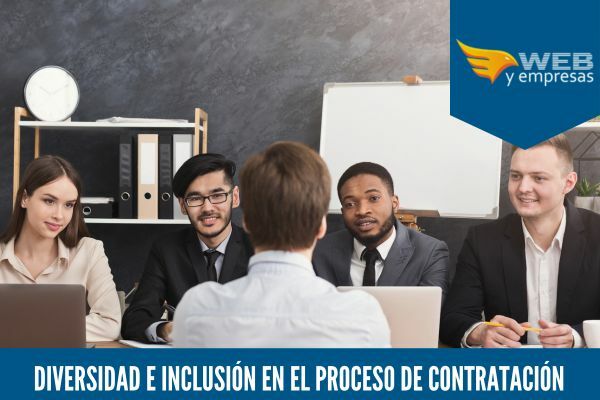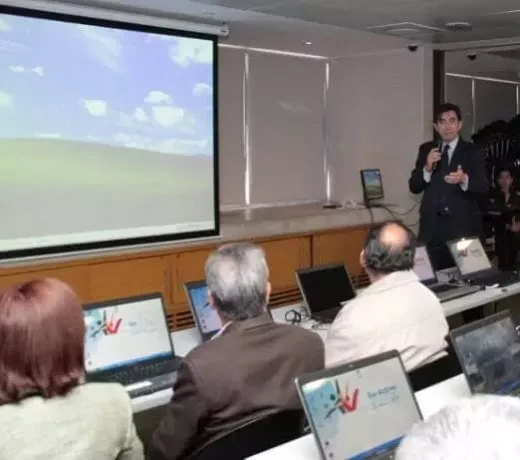diversity and inclusion are more than buzzwords in the modern business arena, they are crucial factors for growth, innovation and success in the long term of any organization.
Implement hiring practices that promote diversity and inclusion not only Creates a positive image of the company but also brings a variety of perspectives that they can lead to more creative and effective solutions.
Advertisements
However, a major barrier to this ideal is unconscious bias, that can negatively influence our decisions without us realizing it.

Advertisements
In this post we show you how companies can avoid these biases to promote diversity and inclusion in the hiring process; But first let's define some basics.
In this article you will find:
What is Diversity and Inclusion?
The diversity refers to the presence of a wide variety of individual characteristics and experiences In an organization, these characteristics may include, but are not limited to, race, gender, sexual orientation, religion, age, physical abilities, national origin, and more.
Advertisements
Refering to inclusion, on the other hand, refers to how these differences are accepted,respected and valued in an organization.
What are unconscious biases?
The unconscious biases are automatic and unintentional prejudices towards certain groups of people, these biases are influenced by our life experiences, our upbringing, and society in general.
Advertisements
These biases may be related to any number of individual characteristics, including race, gender, age, sexual orientation, religion, disability and more; It is important to note that these biases can affect our decisions and behaviors without our being aware of them.
In the context of recruitment, These can manifest in various ways, such as give preference to candidates over others. For example, in a work environment, unconscious bias can lead a manager to assign more challenging responsibilities or promotions. certain employees above others, not because of their skills or job performance, but because of unrecognized biases about their gender, race, or age.
Advertisements
It is essential to understand and recognize these biases in order to work towards fairer and more inclusive decisions and behaviors; training in unconscious biases, coupled with inclusive policies and practices, has been shown to be effective in reducing the impact of these biases in the workplace.
5 strategies to avoid unconscious bias in the hiring process
There are several strategies that companies can implement to minimize unconscious bias in the hiring process.
Unconscious Bias Awareness
Awareness is the first step to combat unconscious bias, organizations should offer training to make recruiters aware of common biases and how they can affect their decisions.
Use of Technology
Artificial intelligence and machine learning tools can help remove bias in the hiring process by evaluate candidates based solely on their skills and experience, without regard to factors such as gender, race, or age.
Standardized hiring processes
Establishing a standardized hiring process can help ensure that all candidates are evaluated in the same way, this may include the use of the same questions for all interviews or have multiple people involved in decision making to minimize the impact of biases individual.
Clear diversity and inclusion policies
Companies should have clear diversity and inclusion policies and ensure that everyone in the organization understands and follows them.
Blind Recruitment
In blind hiring, all information that could lead to bias, such as names, gender, or age, is removed to focus only on the candidate's relevant skills and experiences.
Benefits of diversity and inclusion in the hiring process
Diversity and inclusion in the hiring process brings immense value to any organization by nurturing a more inclusive and diverse work environment.
Firstly, diversity fosters innovation, a diverse team brings a variety of perspectives, experiences and skills, this can result in the generation of novel ideas and creative solutions to problems, which can lead to improvement keep going.
Second, diversity and inclusion improve business performance, Research shows that companies with diverse work teams tend to outperform those with they dont have it; Well, diversity not only means variety of thought, but also reflects the needs of customers, which can lead to a better understanding of the markets.
Third, a diverse and inclusive recruitment strategy can attract and retain top talent, as candidates are increasingly interested in working for companies Those who value diversity and inclusion, employees tend to feel more engaged and satisfied in an inclusive work environment, which in turn reduces employee turnover. staff.
Therefore, diversity and inclusion can improve the reputation of a company, organizations that commit to diversity and inclusion are often viewed more favorably, which can strengthen a company's brand, improve customer relationships, and open up new business opportunities. business.
Conclusion
Finally, we can say that to achieve diversity and inclusion in the recruitment process, involves more than just company policies, rrequires fostering an organizational culture, where the human talent recruitment team has the necessary knowledge to avoid unconscious biases.
Well, after all, one of the phases of the recruitment process are job interviews, it is there where the greatest risks of unconscious bias tend to occur.
as he puts it “The fundamental objective of personnel selection is to discriminate. It is for this reason that some candidates could be selected and others rejected. What is crucial is whether this discrimination is fair or unfair." (Arvey, 1979).
With this thought of arvey, we can conclude that the most effective way to avoid these unconscious biases in the hiring process is the use of measures such as structured interviews, the awareness of prejudices to the recruitment team, as well as the definition of clear inclusive policies, in order to establish objective hiring criteria and fair.
Bibliographic references
Arvey, R. d. (1979). Unfair discrimination in the employment interview: legal and psychological aspects. Psychological Bulletin, 86, 736-765. doi: 10.1037/0033-2909.86.4.736.

